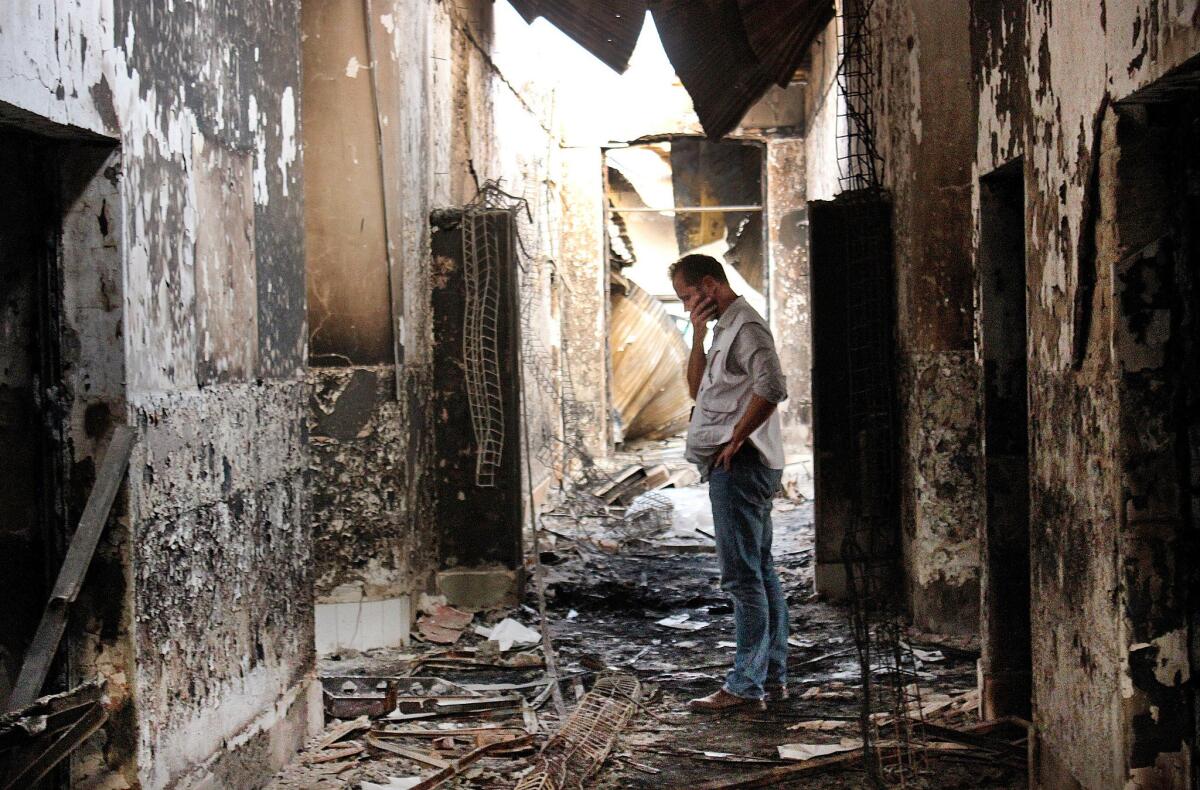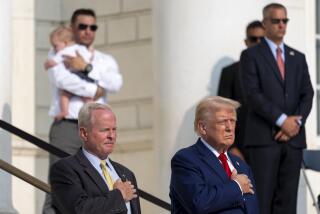The night the hospital in Kunduz became a U.S. military target

An employee of Doctors Without Borders walks inside the charred remains of the organization’s hospital in Kunduz, Afghanistan, on Oct. 16 days after it was hit by a U.S. airstrike.
The Pentagon plans to issue letters of reprimand to 16 service members involved in the deadly airstrike on a Doctors Without Borders hospital in northern Afghanistan last fall but will not seek to court-martial anyone, The Times has learned.
The administrative punishments will be announced Friday at the Pentagon after a six-month investigation of the Oct. 3 attack, which killed 42 medical workers, patients and other Afghan civilians at the humanitarian aid group’s trauma center in Kunduz.
The 16 found at fault include a two-star general and other Air Force and Army special forces personnel, said a U.S. officials who spoke on condition of anonymity to discuss the internal investigation.
Letters of reprimand signify misbehavior and can stop a member of the military from further promotions. The disciplinary letters normally are not made public and do not lead to criminal charges.
Gen. Joseph Votel, head of U.S. Central Command, is expected to announce the punishments. He is not expected to release the names of the 16 found at fault.
Central Command, which oversees U.S. military operations in the Middle East, will post a redacted copy of the 3,000-page investigative report on its website after Votel appears.
The case stems from an accidental late-night assault by a heavily armed AC-130 attack aircraft on a well-marked hospital compound in Kunduz. The attack lasted more than 30 minutes and killed 24 patients, 14 workers and four caretakers.
Gen. John F. Campbell, then-commander of U.S. and NATO forces in Afghanistan and now retired, said in November that the “cause of this tragedy was … avoidable human error, compounded by process and equipment failures.”
Campbell said decisions on whether to prosecute anyone for destroying a facility protected under international rules of war would be made by the U.S. Special Operations Command, where Votel was commander before he was assigned to Central Command.
Doctors Without Borders has asked the U.S. military to allow the International Humanitarian Fact-Finding Commission, which is mandated by the Geneva Convention to investigate apparent violations of international humanitarian law, to conduct an independent inquiry.
“The military has not formally responded that request,” Doctors Without Borders spokesman Tim Shenk said.
More to Read
Sign up for Essential California
The most important California stories and recommendations in your inbox every morning.
You may occasionally receive promotional content from the Los Angeles Times.











